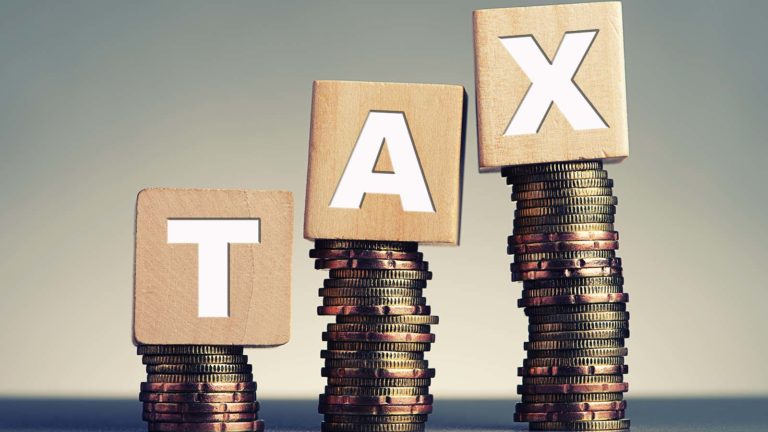As tax day loomed, Americans sought hefty refunds, but what if they missed the tax deadline on April 15? Failure to file on time could incur significant costs, which could be a bigger problem for taxpayers.
Taxpayers with outstanding 2023 returns and owed taxes still had a chance to settle matters before penalties kicked in. While the deadline for most was April 15, it was slightly extended for specific regions or due to certain circumstances. Extensions were granted for those in federally declared disaster areas or affected by specific events.
For those not qualifying for particular extensions, filing Form 4868 granted a six-month extension to submit returns. This extension, however, only delayed the filing deadline, not the payment due date. Taxpayers anticipating owing taxes should estimate and submit payments alongside their extension request.
Missing the mid-April tax deadline is common, whether due to late forms or procrastination. Filing IRS Form 4868 by the due date grants an extension until October 15, 2024, accommodating weekends or holidays.
Getting the Right Estimate
Before you file your taxes, review your tax return in the previous year. Doing so will help you see some changes in your sources of income, whether they may be dividends, wages, capital gains, rental income, interest gains or taxable withdrawals from retirement. The review will also see if there are any significant life events like marriage, divorce or maternity, as these can also have tax implications.
If you find this process overwhelming, Tom O’Saben, the director of tax content at the National Association of Tax Professionals, suggests a quick calculation to gauge whether you owe more than what you’ve already paid to the IRS for the year.
To do so, simply multiply your 2023 income by 20% and compare it to your previous payments. If the amount you’ve already paid falls short, consider making an additional payment to cover the difference by the deadline.
For individuals earning under $200,000, employing the 20% calculation might overstate their tax obligation, ensuring avoidance of penalties. Conversely, those with household incomes surpassing $200,000 may find the 30% estimation more accurate.
What Could Happen if You Miss Filing by Monday?
According to the IRS, individual taxpayers filing late will incur some unpaid tax penalties and failure-to-file penalties. That may start at 5% every month and can be capped at 25%. Moreover, for the failure-to-pay penalty, they will be levied with 0.5% every month to 25% maximum. If both penalties coincide, the maximum charge is 5%. Additionally, interest accrues on outstanding balances.
Even if you cannot settle the total amount by Monday, sending a partial payment helps mitigate penalties and interest. Exploring IRS repayment options further minimizes financial repercussions. Seeking counsel from tax professionals ensures optimal resolution tailored to individual circumstances.
Gig workers, freelancers and sole proprietors should note potential underpayment penalties from failure to pay estimated taxes quarterly. However, late filers who are still owed by the IRS some refunds may be exempted from the failure-to-file penalties, given that the taxes are paid by the deadline. However, these refunds should be claimed within three years, or they will be forfeited.
Penalties May Incur
Again, as mentioned in the earlier sections of this article, late taxpayers shall incur a 5% to 25% penalty if they miss the April deadline or the provided extension dates. To give more clarification, it’s always best to talk to a tax professional who can walk you through other penalties that may apply to your case. It’s also worth reiterating that if you expect a refund, you will not have any penalties for late filing.
If immediate payment is not feasible, consider these options. The first option is a short-term payment plan offering 180 days to settle tax debts without fees, accessible online for sums under $100,000. Next, monthly installment agreements permit gradual payments, available online for debts under $50,000, with setup fees ranging from $31 to $225. Finally, you can seek a temporary delay in collection, requiring a Collection Information Statement and proof of financial status.
Other Possible Alternatives
It’s always right and advisable to pay taxes on time and in every tax season for potential refunds. Although there is a three-year window to claim the refunds, the sooner you collect it, the better for your finances.
So, for the 2023 tax year, the filing is on Monday, April 15, 2024. Once taxpayers file their taxes, receipts will be provided for any refunds due. However, the IRS may still require you to file a return even if there are no taxes owed. If the tax papers are missing, taxpayers can request them from the IRS Get Transcript Online tool or other relevant parties assisting with tax filing.
Although, if a taxpayer misses a deadline, they can still file their taxes for free using the IRS Free File Program. The service is still open until October annually to help taxpayers with an adjusted gross income of $79,000 or less. Taxpayers can select from various tax software providers like TaxSlayer and TaxAct. For those with incomes surpassing $79,000, the IRS offers Free File Fillable Forms, though with less guidance and calculation assistance.
On the date of publication, Chris MacDonald did not hold (either directly or indirectly) any positions in the securities mentioned in this article. The opinions expressed in this article are those of the writer, subject to the InvestorPlace.com Publishing Guidelines.

